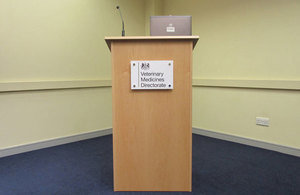The government is making preparations to allow hauliers and other businesses to continue to transport goods between the UK and the EU, once the UK has left the EU. These include preparations for leaving the EU without a withdrawal agreement.
Accordingly, I am today (5 February 2019) laying a draft haulage statutory instrument designed to ensure that UK law continues to operate effectively in this area if the UK leaves the EU without a deal.
The government will continue to license UK hauliers to the same high safety, environmental and operating standards as at present, and will require foreign hauliers operating in this country to do the same. The legislation also provides for continued access to the UK market, after exit, for hauliers from the 27 EU member states. Over 80% of haulage between the UK and continental Europe is undertaken by EU hauliers and it is important to ensure that the UK’s supply chains are protected. The UK needs to be sure that foreign products can be imported and UK products exported as usual. Our approach of offering access at this stage aims both to provide the reassurance needed for international freight flows to continue, and also to help ensure reciprocal arrangements for UK hauliers.
On its side, the European Commission has proposed legislation that would allow UK hauliers basic rights to conduct operations to, from and through the EU for a limited period of 9 months after exit, if there is no deal. The Commission’s proposal will need to be agreed by the Council and European Parliament, and is being considered by both institutions urgently. This proposal is predicated on the UK’s granting equivalent access for EU hauliers to the UK, and the legislation laid before the House today provides for that access. Indeed, it is a more liberal offer, and we are discussing with the Commission whether there is scope for them to extend the EU’s offer so as to match ours.
Depending on the outcome of these discussions, we will review the UK’s offer to EU hauliers. Our legislation contains provision to suspend EU hauliers’ rights to undertake cabotage operations in the UK. We are putting in place measures to introduce such a suspension, which could be put into effect immediately after exit day if needed. Our expectation, however, is that such a suspension will not be necessary.
In parallel we have been considering bilateral and unilateral measures with EU member states. France is separately progressing with a unilateral measure to provide wider access to UK hauliers in the event of no deal. There are also 22 historic bilateral agreements that would come back into effect if the UK leaves the EU without a deal.
In addition, a multilateral quota of transport licences was introduced by the European Conference of Ministers of Transport (ECMT) in 1974 to support liberalised road freight transport between member states of that body. The licences, known as ECMT permits, allow for access between the 43 member states (which include all EU member states except Cyprus). The UK has an allocation of 984 annual and 2,832 short-term (valid for 30 days) ECMT permits for 2019. These levels were agreed through a long-standing formula approach before it was known that the UK would be leaving the EU. The government’s expectation is that hauliers should not need an ECMT permit to continue doing a range of business in all or much of the EU, even in the event of no deal. But it is important to continue to prepare for all possible scenarios, and if it should prove necessary to use some of these permits for UK hauliers operating to EU countries, the government has put in place a scheme to allocate these permits, as detailed under the Haulage Permits and Trailer Registration Act 2018.
UK hauliers have been applying for ECMT permits and the government expects to inform applicants of the outcome of their applications later this week. As we expect UK hauliers will have other means of ensuing market access to the EU, we will inform UK hauliers of the outcomes to provide certainty, but will allow a period of time before these need to be formally taken and paid for by successful hauliers. This approach has been agreed with road haulage stakeholders. The 2018 Act provides appropriate arrangements for distributing new permits as may be required under any future bilateral arrangements, if these are needed.
Overall, we continue to believe that reciprocal market access will be secured for UK hauliers. While continuing to plan for all eventualities, we also believe that it is right to underline the fact that the UK is taking a positive and pragmatic approach.
